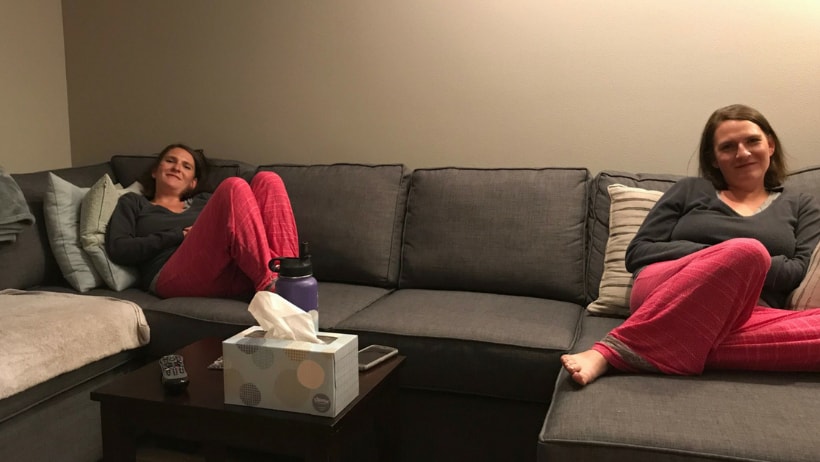A few year ago, the summer before Matan was born, we bought a new couch. Our old couch was still in great condition, but we expected, and rightly so, that a larger couch would better suit the needs of our growing family. We went and sat on many couches looking for the right balance of child friendly, clean lines, adequate seating, and comfort. We settled on a couch that was a sectional and included a chaise lounge.

Previously, my regular couch spot had been the corner of the sectional. Everyone knew this was my spot. But with this new couch, I had great visions of using the forward-facing chaise lounge to relax with my feet up, back straight, TV ahead. What happened? The couch arrived, and my grand plan to move to this new spot lasted only a few months after Matan’s birth. Back to my corner I went. After so many years in the same spot, it just didn’t feel right to move. The perspective was different, the cushions not squished just so, and it simply didn’t work.
As human beings we are hardwired to become creatures of habit. When we stay somewhere too long, or do something the same way long enough, it can be very difficult and even painful to make a change. The Israelites are acutely aware of this in our Torah portion this week, Devarim. Devarim stresses the covenant between God and Israel and looks toward Israel’s future in a new land as they build a society that pursues justice and righteousness. The central theme of this section of text is monotheism – the belief in one God – and building a society around the laws we’ve been given over the course of the four previous books.
The Israelites at this point in the Torah have been stationary for a bit. They have created camps outside the land of Israel and grown as a nation. They have become accustomed to this transient lifestyle, and there is some concern for how they will adjust to their new land. In Moses’s first discourse to the people, he begins, “The Lord our God spoke to us at Horeb, saying: ‘You have stayed long enough at this mountain.’” God understood the danger in the people growing too comfortable where they were, reluctant to move toward an unknown future.
A big shift can be scary, but our growth as an individual or community often requires a change. A growing family needs more space, just as a growing synagogue or school might. When we first got the new couch, I went back and forth in different spots for three months so that I could properly nurse and snuggle with Matan. It wasn’t a huge, life-altering change, but the discomfort of changing routine and losing my cozy corner was both physical and emotional. While living in the routine and within our (sometimes literal) comfort zone is easy, and even necessary at times, we grow and learn much more when we stretch into new, uncharted territories. Parshat Devarim reminds us that it is our job to keep moving, to search out the next challenge, and to overcome it together. Does that mean I’m giving up my spot? Not a chance.



